Is Titanium Magnetic? Easy Guide Online
 Jun 08,2023
Jun 08,2023

Titanium metal has many uses in the medical field nowadays. Other than that, it has now become a popular metal in the aerospace and automotive industries. Titanium bracelets and titanium rings are very famous among men and women. They do not rust, corrode, or scratch and can be used for many years. It has wide use in the manufacturing industry as well because of its many interesting features. Among them, the magnetic properties of titanium are the most notable. This article will highlight some interesting facts about titanium and its extraordinary properties. It is important to know about the basic features of any magnetic metal before using it for any project. This piece of writing will provide basic information on titanium metal. Then it will highlight its applications in terms of its properties.
Contents
Click the links below to skip to the section in the guide:
Is Titanium Paramagnetic or Diamagnetic
Applications of Nonmagnetic Titanium
Does Titanium Conduct Electricity?
Will Titanium Set off a Metal Detector?
Titanium Used for Toufa Custom Project
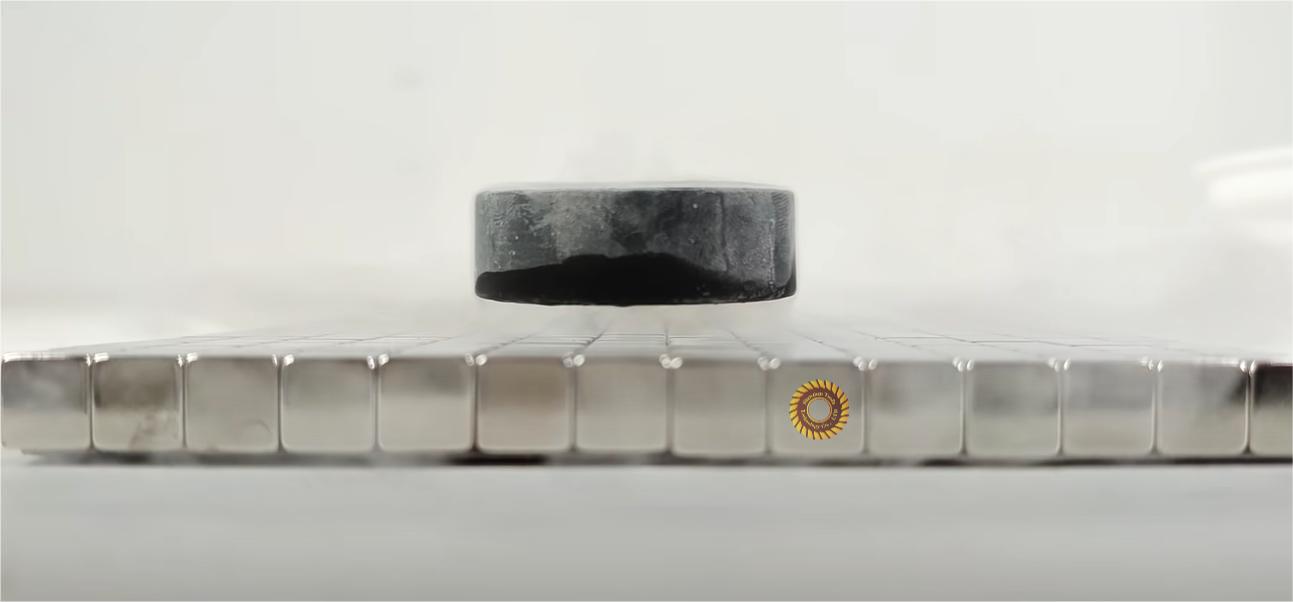
Understanding Titanium
Titanium metal is known to be the tenth most abundant material in the world. Its name, 'Titanium,' was derived from the Greek word 'Titan .'This means 'the first son of the earth.' Pure titanium was first found in 1910. An American metallurgist named Matthew A. Hunter first discovered this metal.
This element has 22 atomic numbers in the periodic table. It has an atomic mass of 47.867. These properties were discovered by an English pastor, Reverend William Gregor, in 1791. Titanium is always found bonded with other chemical compounds in its ores.
It has known to have a lighter weight than the stainless steel. It is 45% lighter than steel and has the ability to survive heavy loads. It is a good metal to survive high temperatures and repeated strains. Therefore, it is a suitable material to use in the aerospace industry.
Other properties of titanium have increased its importance. These are high corrosion resistance, tensile strength, and strength-to-weight ratio. These make it a perfect material to use in the medical field and space. Titanium has a high melting temperature. And it has low thermal conductivity. Therefore, it could be a better conductor of electricity and heat. Titanium is an insulator and a good option to use in extreme conditions.
Is Titanium Magnetic?
No, titanium is not magnetic. It is a paramagnetic material. It is a weakly magnetic material. This is because of its electronic configuration. It has four unpaired electrons in its outermost shell. The paramagnetic property of any magnetic material depends on its unpaired electrons. The magnetic moment of titanium is the reason for its paramagnetic nature. It has a 1.73BM magnetic moment. The paramagnetic nature of titanium reveals in its oxidation states of -1, +2, and +3. The magnetic susceptibility of titanium is very small but positive. This defines as the degree of a material being magnetized in the presence of the external magnetic field. The small magnetic susceptibility of titanium makes it a weak magnetic material compared to other ferromagnetic metals.
Do Magnets Stick to Titanium
Titanium does not stick to magnets. This is due to its small magnetic susceptibility. In some cases, it is slightly attracted to magnets and termed paramagnetic. When the temperature increases around the titanium, the magnetic dipoles are randomly organized. This further decreases its magnetic susceptibility.
For a ferromagnetic material. The dipoles should be aligned in the direction of the magnetic field. Then, the magnetic susceptibility increases rapidly. This occurs after the Curie temperature in ferromagnetic materials. This is the temperature at which any material losses its consistent magnetic properties due to induced magnetism. At this point, thermal distress in any material increases. This breaks the alignment of the dipoles and reduces magnetic susceptibility.
Titanium also shows a lesser Lenz effect than other ferromagnetic materials. This implies that when a strong magnetic field is applied, a minor eddy current is produced. This current has a magnetic field of its own. This field interacts with the varying magnetic field, causing metal to move without contacting. However, titanium interacts little with other magnets. In addition, other ferromagnetic materials react significantly to it. In the presence of a magnetic field, titanium's magnetic properties are negligible.
Why is Titanium not Magnetic?
Ferromagnetic materials have positive ions. These are the atoms that have lost one or a few electrons. These ions have a cloud of negative ions around them. This creates an attraction between positive and negative ions, which hold the metal together. When a magnetic field brings close to the metal, these ions are lined up inside the material. A resultant magnetic force is created, which pushes the metal toward the magnet. Titanium does not have these forces. Because it is nonmagnetic. The positive and negative ions in its atomic structure do not align near the magnetic field. This is due to the unpaired electrons in titanium, which cannot create a magnetic field. Thus, magnetic is not magnetic, and it cannot stick to the magnets. Neither it has any significant effect in the presence of a magnetic field.
Is Titanium Paramagnetic or Diamagnetic
Titanium is paramagnetic. It has four unpaired electrons. The electronic configuration of titanium is [Ar]3d24s2. This is responsible for having 2 electrons in the 3d shell and 2 electrons in the 4th shell in titanium. A metal can only be paramagnetic if it has unpaired electrons in its outer shell. The presence of these electrons results in the unique properties of titanium.
When a paramagnetic material exposes to a magnetic field, the molecules in its atomic structure become aligned in the field direction. But, due to thermal energy inside the atomic structure, this alignment is random. The magnetic dipoles, thus, have a random arrangement in paramagnetic material. This is the case in titanium. It has a random arrangement of magnetic dipoles in the presence of the magnetic field. That is why it is paramagnetic. In the case of ferromagnetic material, the magnetic dipoles are arranged in a line in an upward direction. This is the property of a strong magnetic material. And this makes it a stronger magnetic material than paramagnetic.
Applications of Nonmagnetic Titanium
Titanium metal has great use in the medical field. It is used in making surgical tools, dental and body implants. This is due to its exceptional corrosion resistance. Other than that, it is also used in the aerospace industry and automotive industries because it is lighter in weight than steel and has higher strength than any other traditional material.
|
Applications |
Description |
Image |
|
Titanium Neckless |
These neckless are lighter weight than steel. It is also affordable, safe to use, and good-looking. |
|
|
Titanium rings |
These rings are corrosion-resistant. These are difficult to rust and scratch. |
|
|
Titanium screwdrivers |
These screwdrivers are lightweight, corrosion-resistant, and have higher strength than steel. They also have good wear and tear resistance. |
|
|
Titanium chopsticks |
These have low thermal conductivity. This implies they do not easily get hot or cold during eating. Thus, making it a suitable material. |
|
|
Titanium keychains |
These are lightweight, more durable, and can be used in the long term. They are also good-looking. |
|
|
Titanium bio magnetic bracelets |
They Increase the energy level and provide ease for arthritis pain. These are good for low cholesterol and blood circulation, and body metabolism. |
|
|
Titanium magnetic screwdrivers |
These are very handy. Suitable for electronic parts and small parts is much easier to stick to screwdrivers. |
|
|
Medical implants |
They are used widely because of their lightweight, corrosion-resistant, and nonmagnetic nature. These features make it suitable for biocompatibility. |
|
Is Gold Attracted to Magnets?
No, magnets do not attract gold. Gold is a native element. Its outermost is complete and has no unpaired electrons. When a strong magnetic field is present near the gold, it repels the metal. But this is very small or negligible and cannot be detected using magnets.
Is surgical titanium magnetic?
No, surgical titanium is not magnetic. The reason for using titanium for surgical tools is its nonmagnetic nature. If there is any interaction of medical tools with the body or another thing, this could be risky. Also, it is non-reactive. This makes it perfect for use inside the body. There are many fluids, solvents, minerals, and blood inside the body, and titanium is a good choice for implant and surgical material. It is neither magnetic nor reactive. But the use of any material is dependent upon its application and environment. Titanium can be magnetic in some cases, like titanium magnetic screwdrivers. But it is kept nonmagnetic, especially for medical field applications.
Is Titanium MRI safe?
Titanium is very to use in MRI. It is a paramagnetic material that does not affect the magnetic field during MRI. Titanium is non-reactive and has high corrosion resistance. It is also lightweight, which is suitable for medical field applications. This risk of complications by using titanium is very low. And thus, it is the safest nonmagnetic or nonferromagnetic material to use in MRI. Titanium is one of the oldest materials to use in various surgical applications.
Does Titanium Conduct Electricity?
Titanium metal is a bad conductor of electricity. It is metal. And metals usually are the conductor of heat and electricity. This is due to the presence of free electrons in a metal, and they can move inside the metal freely. This movement makes them heat and electricity conductors. In titanium, the outermost shell is filled, and no free electrons are present. Titanium has a high melting temperature. And it has low thermal conductivity. Therefore, it could be a better conductor of electricity and heat. Titanium is an insulator and a good option to use in extreme conditions.
Will Titanium Set off a Metal Detector?
No, titanium does not set off a Metal Detector. Titanium is nonmagnetic. It cannot set off the normal metal detector. Metal detectors do not detect the presence of metal inside an object, as such. Instead, it detects the magnetic field. Titanium is nonferromagnetic and contains no iron in it. So, there is no such magnetic field inside the titanium. Or the magnetic field is very low in titanium when it is paramagnetic that cannot be detected. That is why titanium metal is not detectable and a viable choice for many applications.
Conclusion
Titanium metal is a nonmagnetic material. It is paramagnetic in the presence of magnetic fields when unpaired electrons are present in its orbital. It is a 45% lighter-weight material than stainless steel. It has good corrosion resistance and high tensile strength. This makes it a perfect choice for aerospace and automobile applications. It is non-toxic and non-reactive material. This makes it a good option for medical field applications. It is one of the most commonly used materials for medical field applications. It is biocompatible metal for implants and surgical tools. Titanium jewelry, like titanium bracelets and titanium rings, is famous among men and women. They do not rust, corrode, or scratch and can be used for many years. Titanium metal has a high melting temperature and low thermal conductivity. It is an insulator and a good option to use in extreme conditions.
Titanium Used for Toufa Custom Project
Tuofa provides exceptional products and titanium services for high-precision CNC machining turning titanium alloys. It provides anodized titanium metal spare parts for automotive applications. CNC turning offers by Tuofa can provide a range of axisymmetric shapes. These include disks, cones, cylinders, and a combination of these shapes of titanium metal and alloys. Toufa also has a variety of tuning centers like polygonal or hexagonal turning using special rotating tools along the rotation axis.
FAQs about Titanium
Is titanium heavy?
No, titanium is not heavy. It is an exceptionally lightweight material. It is 45% lighter in weight than stainless steel. This has the highest strength-to-weight ratio, which is lighter and stronger. Therefore, it is used in aerospace and aircraft applications.
Is Titanium Valuable?
Titanium metal is not precious or rare. It is the 10th most abundant element found in the earth’s crust. It is 4th most abundant metal on earth. Therefore, it's not so expensive or valuable.
Is titanium jewelry magnetic?
No, titanium jewelry is not magnetic. Titanium metal is not magnetic in nature. Therefore, it does not attract magnets, and it does not have any magnetic field.
 Tel/WeChat:
Tel/WeChat:  Email:
Email: 
 Home
Home
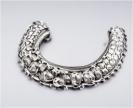
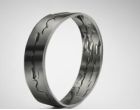



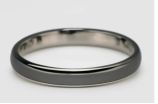

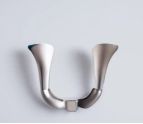
 Is Aluminum Magnetic? Yes or No: Explore the Science
Is Aluminum Magnetic? Yes or No: Explore the Science 







